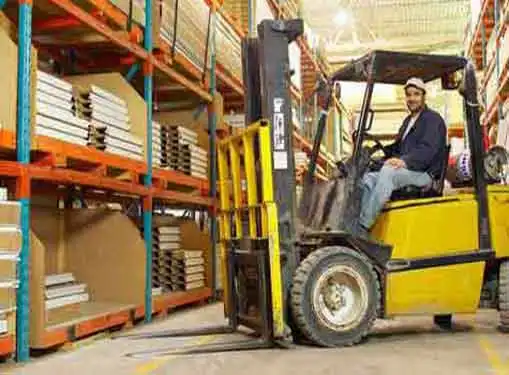Forklifts
Forklift Basics
Forklifts are a necessity for many small and medium-sized businesses. But buying a forklift isn't as simple as it sounds. With lots of models and options on the market, you need to know what you're looking for before you break out your checkbook.
Reliable forklifts (or lift trucks) are the workhorses of today's manufacturing and warehousing environments.

Since a single breakdown can create a chain reaction of delays throughout your company, it's important to take your time and select a forklift you can count on.
Many new business owners don't realize the variety of forklifts that are available these days. Improved safety and efficiency concerns have led to a diverse mix of product offerings that have been designed to meet specific work requirements. In fact, it's not uncommon for a single company to own several different kinds of forklifts, each one tailored to a specific function or job requirement.
- Fuel. Fuel source is a primary consideration in a forklift purchase. Electric forklifts are popular indoor models because they generate zero emissions. With battery lives designed to last for an eight-hour shift, they are viable options for many companies. Internal combustion (IC) forklifts are also available in gas, diesel, LPG, and CNG models.
- Capacity. Load-carrying capacity is another important factor in a forklift purchase. Lift trucks are available with load capacities ranging from 3,000 to 30,000 pounds. (If you require less than 3,000 pound capacity, a pallet jack is probably a better option.) The most common small business models are 5,000 pound lifts – but it's important to evaluate your capacity requirements before you enter the marketplace.
- Options. Today's forklifts come with tons of options and accessories that tailor the product to your workflows. Features including safety lights and backup beepers create a safer work environment. Ergonomically-designed driver features allow warehouse personnel to work for longer periods of time. Other features like attachments, side shift ability and tilt mast improve productivity and minimize the potential for product damage.
- New vs. used. Small business owners often debate the merits of buying a used forklift rather than a brand new one. Although new forklifts provide peace of mind, high quality, reconditioned forklifts are also available, especially now that leasing has become a common feature in the forklift industry. As a rule of thumb, if you use the lift for less than four hours per day, a used forklift will usually suffice. Companies that demand higher usage are almost always better off purchasing new.
Share this article
Additional Resources for Entrepreneurs



Conversation Board
We greatly appreciate any advice you can provide on this topic. Please contribute your insights on this topic so others can benefit.